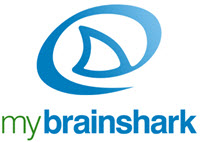 Screencasts are an educational technology that have accelerated from zero to sixty in a relatively short time — in fact, over just the past few years. Screencasts have the potential, too, to radically change education. For one thing, they are the technology behind the pedagogical notion of “flipping” the classroom — that is, of providing content to students outside of class via screencasts, and reserving class time for more engaging activities that leverage application of knowledge, peer instruction, and collaboration. The word “flipping” almost sounds glib, but the pedagogical change it embodies is revolutionary: it threatens to upend what higher education has been for the past, oh, thousand years.
Screencasts are an educational technology that have accelerated from zero to sixty in a relatively short time — in fact, over just the past few years. Screencasts have the potential, too, to radically change education. For one thing, they are the technology behind the pedagogical notion of “flipping” the classroom — that is, of providing content to students outside of class via screencasts, and reserving class time for more engaging activities that leverage application of knowledge, peer instruction, and collaboration. The word “flipping” almost sounds glib, but the pedagogical change it embodies is revolutionary: it threatens to upend what higher education has been for the past, oh, thousand years.
In my workshops on screencasts, I usually refer to Camtasia, Adobe Presenter, and Screencast-O-Matic as good tools for creating screencasts. Camtasia is a good choice at the University of Waterloo because we have a site license for it, so you can buy an inexpensive copy at The Chip. Screencast-O-Matic is a viable option for those who want to test the waters: its fully online (nothing to download) and free; it has limited editing capabilities, but it will give you a sense of what you might do with screencasts in your courses.
Just a few weeks ago, I also discovered another screencasting tool that I would recommend: MyBrainShark. This tool is perfect if you already have a PowerPoint presentation and want to record narration for it. It’s free, fully online, and dead simple to use. I also like the fact that links that are embedded into the PPT presentation remain “live” after the presentation has been converted into a MyBrainShark screencast.
You can see an example of a MyBrainShark screencast here (it’s a screencast about “glimpse concepts” and their relevance to smart phones).